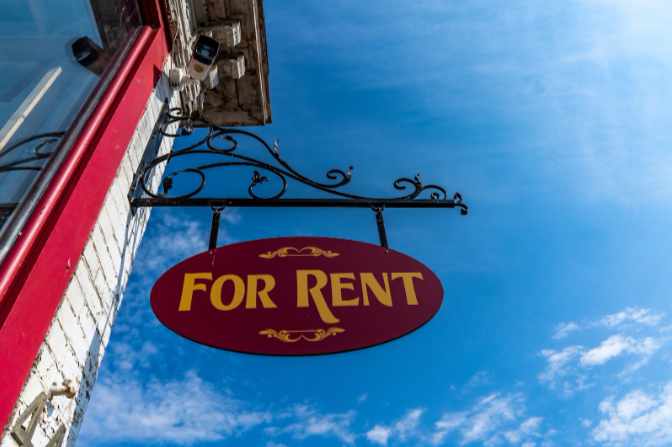Are you considering investing in rental properties? It can be an intimidating task to undertake, especially when it is your first time, but it does not have to be. Luckily, there is a rental property calculator that you can use to help make the decision-making process easier.

In this article, we will explore why this type of calculator is so important, as well as offer some tips on how to buy and manage an investment property. You don’t need to worry about over- or understating your finances; your calculator will do all the hard work of running the numbers for you.
So, sit back, relax, and let’s get started!
Investment Property Calculator: The Key to Investment Success
An investment property calculator is incredibly useful for rental property investors. It is a tool that will help you calculate the rental income, rental expense, and net rental yield of the property. This information allows you to make more informed decisions about your investments.
The calculator can also be used to estimate cash flow over time, as well as the costs associated with buying, owning, and managing rental properties. With this data in hand, you will be able to determine whether or not an investment makes financial sense for you.
In addition, a rental investment calculator can also calculate what kind of return on investment (ROI) potential a particular rental property may have for you. Many calculators will also provide estimates on capital gains tax liability when selling a rental property.
How to Use a Real Estate Investment Calculator
When using a rental property calculator, you will need to input some pieces of basic information. Once they are entered into the calculator, it will generate a variety of results that can help you make more informed decisions about your rental investments.
Some calculators are also more comprehensive than others. You can use them to calculate other rental-related expenses, such as insurance, property taxes, and other associated fees.
Essential Factors to Know When Using a Rental Property Calculator
To effectively use a real estate investment calculator, you need to determine some key aspects, such as the following.
- The Property’s Purchase Price – This is the total amount of money you will need to purchase the rental property.
- Down Payment – You will need to know how much you are willing to put down as a down payment.
- Mortgage Interest Rate – This is the interest rate you will be paying on your mortgage loan.
- Annual Property Taxes – You should include this amount in your calculations so that they can be factored into your total rental income and expenses.
- Rental Income – This is the amount of money you will receive from tenants or guests each month.
- Operating Expenses – These are all of the costs associated with owning a rental property, such as taxes, insurance, maintenance, and repairs.
- Net Rental Yield – This is the difference between rental income and rental expenses after all costs have been accounted for. It is the return on your rental property investment.
Regardless of the real estate investment calculator that you are using, these are the key factors to consider when making rental investment decisions.
Buying a Rental Property
Now that you know how to use a rental property calculator, let us give you some tips for buying rental properties.
1. Do Your Research
Before investing in any property, you need to do your research. Take time to analyze the local market conditions and get a good understanding of what kind of rental income potential there is in your area.
Key Points to Look at During Your Research
When vetting potential properties, there are things that you need to consider, such as the following.
Potential ROI
The best rental properties to buy are those which provide the highest return potential. Using a rental income calculator, you can determine the rental yield of a property and decide whether or not it is a good rental investment for you.
Another way to know the return potential of a certain property is by calculating the cap rate, which is rental income divided by the purchase price. For rentals, a good cap rate can range from 7-12%. This means that the risk will not be too low or too high, while you can still generate a decent ROI.
Location
When it comes to buying rentals, location is a crucial factor. You want to purchase properties in areas with strong rental demand and low vacancy rates. Do your research and select those that are located in desirable markets.
Ideally, you should consider properties that are close to amenities, such as grocery stores, schools, and public transportation. They will be easier to rent out and may generate higher rental income.
If you are investing in short-term vacation rentals, then it should be in a popular tourist destination and close to the attractions. This way, you can attract more guests and generate more rental income.
Type of Property
Depending on where you plan to buy your rental, various types of properties will be available to you.
For example, you can look for apartments and condos in the city, which are in demand among individuals looking to live close to their workplaces and necessary amenities.
You can also look for single-family homes, which are great investments if you plan to rent out the entire house or individual rooms. These properties may require more maintenance, but they will bring in higher rental income compared to apartments and condos.
If you are targeting vacationers, then you can opt for beach houses or mountain cabins. They may be located in more remote areas, but rental properties like these will allow you to charge premium rates.
2. Get Financing
Once you have narrowed down the rental properties that make financial sense to invest in, it is important to get financing options. You can use rental property calculators to determine how much of a loan you can afford and what type of loan would be best for your rental investment.
You can get a conventional mortgage, which is usually the most practical option as it provides lower interest rates and longer terms. However, if you plan to rent out individual rooms in rental homes, then you may need to apply for an investment property loan, which generally offers higher interest rates but shorter terms.
If you are qualified, you can also take out government-backed loans, such as FHA loans and VA loans, which can offer better terms but will require you to have good credit.
3. Crunch the Numbers
It is important to run the numbers before making any major decisions about purchasing a rental property. Again, you can utilize an ROI calculator real estate investors use to determine the rental yield of a rental property and how much cash flow you can expect to generate.
You should also look into the other costs associated with owning rental properties, such as taxes, insurance premiums, maintenance costs, and vacancy costs. Make sure that you have enough funds or financing options to cover these costs before investing.
4. Seek Help from a Local Real Estate Agent
A local agent will be your best friend when it comes to rental investments. They know the rental market and can provide you with property listings that are suitable for investment criteria and goals.
These agents can also help you find properties that suit your budget and your location preferences. Plus, they have access to MLS listings so you do not miss out on any great offers. Lastly, they can help negotiate better terms and conditions with the seller.
Once you have some criteria for rental properties in mind, all you need to do is share them with your agent, and they will do the legwork and find rental properties that fit the bill.
Marketing Your Rental Property

After you have made the purchase, it is time to spread the word about it. Here are a few tips on how to market your rental property effectively.
1. Put it up on rental real estate listings.
The best way to promote your rental property is to list it on rental real estate sites, such as Airbnb, Zillow, VRBO, and so on. Most of these websites are free, except for the service fee that they get when someone books your place, so you do not have to worry about spending a lot of money on advertising on these platforms.
However, to attract more tenants or guests, you have to add a good description of your property. Also, you have to include high-quality photos and videos.
2. Use Social Media
As most people these days use social media, it is wise to use it in marketing your rental property. You can use popular platforms, such as Facebook, Twitter, and Instagram, to post images and videos of your rental, again with an attractive rental description.
You can also leverage influencers or rental communities to spread the word about your business. This way, you will reach a larger audience, which will lead to more bookings.
3. Hand out flyers.
Traditional methods of advertising, like flyers, still work for businesses today. You can distribute them in busy places, like malls, cafes, and other areas with lots of foot traffic.
When creating your flyers, remember to include your rates, rental policies, amenities that come with your property, and other crucial details.
You should also consider renting out a billboard or two if you want to quickly capture the attention of people who drive by your rental property’s location.
4. Reach out to local real estate agents.
Again, real estate agents usually have a long list of people who may be looking for rental properties. They can help promote your property by informing their clients about it and even offer rental referrals.
With all these methods, you will have a great chance of increasing rental bookings.
Managing Your Rental Property
When it comes to managing your rental property, there are two routes that you can take: self-management and hiring a property manager.
Self-managing your rental property is a great way to save money. You can screen rental applicants, collect rental payments, handle day-to-day issues that may arise with the rental property, and more.
Before you consider self-managing your rental property, however, make sure you understand all the legal responsibilities that come with it. Also, keep in mind that it can be quite time-consuming to manage everything alone.
On the other hand, if you feel overwhelmed by handling the rental property yourself or do not have enough time to do so because of work or other commitments, then hiring a rental property manager is the way to go.
Property managers are experienced professionals who understand the rental industry and can handle rental properties more efficiently, as they have a team of people assisting them. It may cost you a bit more in terms of fees, but it will be worth it in the long run.
Conclusion
By now, you should already realize that rental investing requires effort and dedication. But with the right tools, like a rental property calculator, and well-thought strategies for marketing and managing your property, you can be on your way to becoming a successful rental investor in no time.
For the latest news, tips, and information on real estate, check out our other posts. Good luck!


